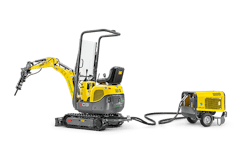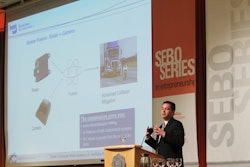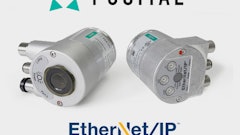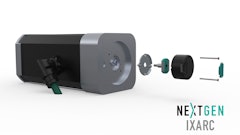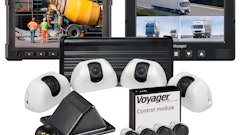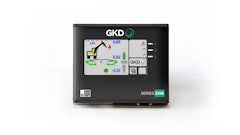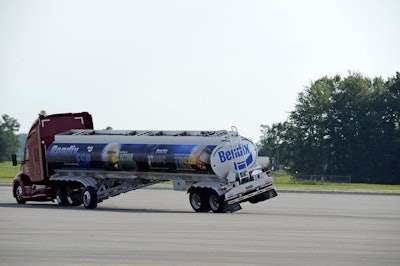
Bendix Commercial Vehicle Systems LLC (Bendix) has now delivered more than 400,000 Bendix ESP Electronic Stability Program systems as the market continues to drive adoption of full-stability technology. Robust, growing sales over the last five years led to this latest delivery milestone. The achievement reinforces the company’s position as an industry leader in full-stability technology.
Bendix ESP, the first full-stability solution widely available for the commercial vehicle market, fully meets the new stability mandate of the National Highway Traffic Safety Administration, which in June published its final rule requiring ESC (Electronic Stability Control) technology – known as full stability – on Class 7 and Class 8 truck tractors and motorcoaches with a gross vehicle weight rating of greater than 11,793 kg (26,000 lbs.). NHTSA will implement the mandate in three phases, starting August 1, 2017, for most three-axle tractors.
“More and more fleets, truck makers, and drivers are turning to Bendix ESP, and they’re doing so with confidence in a rigorously tested, reliable system that has been proven over many millions of real-world miles since its launch 10 years ago,” says Scott Burkhart, Bendix Vice President – Sales, Marketing, and Business Development. “The technology rewards fleets by helping to decrease the number of heavy truck accidents and improve safety records, while delivering the value they require. As NHTSA’s mandate is implemented, the benefits of full stability will be experienced industry wide and help to improve highway safety even further.”
Bendix, the North American leader in the development and manufacture of active safety and braking solutions for commercial vehicles, introduced Bendix ESP in 2005. It took six years to reach 100,000 units sold, but that mark was tripled in the subsequent three-year period as original equipment manufacturers and fleets sought the technology.
Mack and Volvo offer Bendix ESP as standard equipment on their highway tractors, and it comes standard on the majority of Peterbilt Motor Company’s Class 8 trucks and tractors as well. Other manufacturers offering the Bendix ESP system include International, Kenworth and Prevost. Bendix ESP is also available for more than 80% of all medium-duty chassis configurations at PACCAR and Navistar.
Earlier this year, Motor Coach Industries (MCI), the leading intercity coach manufacturer in the United States and Canada, also announced the availability of Bendix ESP on its vehicles. Blue Bird Corporation added Bendix ESP as a factory-installed option in late 2014, making it the first North American school bus manufacturer to offer stability technology.
Fleets equipping Bendix ESP include Prime Inc., one of North America’s most successful refrigerated, flatbed and tanker trucking companies; U.S. Xpress Enterprises, the nation’s second largest privately owned truckload carrier; and Saia LTL Freight, a top 10 carrier in the LTL sector with coverage in 34 states.
For its stability mandate, NHTSA chose ESC over RSC (Roll Stability Control), or roll-only technology. Fred Andersky, Bendix Director of Government and Industry Affairs, emphasizes that Bendix always prefers to let the market be the catalyst to drive safety technology. The company applauds NHTSA’s decision, and believes ESC is the superior choice for safety, performance and value. In terms of market acceptance, Andersky points out, ESC has been outselling RSC at a rate of three to one, up from three to two in recent years.
He states that the commercial vehicle market is choosing full-stability technology in ever-increasing numbers as it strives to enhance driver and highway safety. Andersky notes two primary differences between vehicles equipped with full-stability technology and those with either a roll-stability system or ABS (antilock braking system) only.
First, full-stability systems use more sensors than either roll-only stability or ABS systems, creating a more comprehensive system capable of addressing both roll and directional stability. These additional sensors enable the unit to more quickly recognize factors that could lead to vehicle rollovers or loss-of-control. On dry surfaces, this means the system recognizes and mitigates conditions that could lead to rollover and loss-of-control situations sooner than roll-only options. Full-stability technology also functions in a wider range of driving and road conditions than roll-only systems, including snowy, ice-covered and slippery surfaces. ABS systems are not designed to react to potential roll or loss-of-control situations.
And interventions can also differ. Full-stability systems rely on automatic brake interventions involving the steer, drive and trailer axles, whereas roll-only systems typically apply the brakes on only the drive and trailer axles. Slowing the vehicle quickly helps mitigate rollovers faster, while slowing and redirecting can help the driver maneuver in loss-of-control situations.
Bendix ESP also serves as the foundation for Bendix advanced active safety technologies, including:
- Bendix Wingman Advanced – A Collision Mitigation Technology, which combines both adaptive cruise control and collision mitigation to help drivers mitigate or reduce the intensity of potential rear-end collision situations; and
- Bendix Wingman Fusion, a newly launched technology that makes possible stationary vehicle braking, Bendix’s exclusive overspeed alert and action, and more. Wingman Fusion integrates next-generation advanced safety technologies (radar, camera, brakes, and the SafetyDirect Web portal) into one comprehensive driver assistance system that’s more powerful than other safety system technology combinations in the North American commercial vehicle marketplace.
When paired with a trailer equipped with the Bendix TABS-6 Advanced trailer roll stability system, Bendix ESP helps optimize stability protection, since the systems together address a wider range of potential rollover scenarios and apply more braking power during system interventions.
Andersky stresses that technologies such as Bendix ESP are designed to assist drivers, not replace them.
“The driver maintains responsibility for the safe operation of the vehicle at all times,” Andersky says. “No technology – regardless of how advanced – is as important as continuous, proactive driver training and alert, safe drivers practicing safe driving habits.”
The Bendix ESP full-stability system is part of the ever-growing Bendix portfolio of technologies that deliver on safety, plus other areas critical to fleets’ success. By improving vehicle performance and efficiency and providing unparalleled post-sales support, Bendix aims to strengthen returns on investment in equipment and technology, helping fleets and drivers lower their total costs of vehicle ownership, and enhancing roadway safety.





